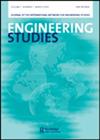大学毕业后的成长:工程工作转型中的代理与结构
IF 1.3
3区 工程技术
Q2 EDUCATION, SCIENTIFIC DISCIPLINES
引用次数: 3
摘要
工程教育和工程研究已经清楚地阐明了教育改革的必要性,以帮助新工程师理解他们工作的社会层面,并作为变革的推动者。与此同时,虽然一些执业工程师可能致力于系统变革和服务社会,但他们也必须与服务于公司利益和限制变革的工作责任相抗衡。为了突出要求社会公正的工程教育与限制工程工作的企业背景之间的紧张关系,本研究考察了一位早期职业工程师的工作过渡。利用图形世界的概念,我们研究了个体工程师的代理与工程工作场所文化结构之间未被探索的关系。这种结构-代理方法指导了我们对参与者早期工作经历的叙事分析,该分析基于她头两年工作期间的五次采访。我们的研究结果表明,需要通过解开个人经历的复杂身份谈判来扩展教育准备和工程工作的表征。在这样做的过程中,我们也证明了结构-代理框架和叙事方法对工程研究和工程教育中的身份研究者的价值。本文章由计算机程序翻译,如有差异,请以英文原文为准。
Becoming after College: Agency and Structure in Transitions to Engineering Work
Engineering education and engineering studies research has clearly articulated a need for educational reform to help new engineers understand social dimensions of their work and act as change agents. At the same time, while some practicing engineers may be committed to systemic change and service to society, they must also contend with work responsibilities which serve corporate interests and constrain change. To highlight tensions between calls for socially just engineering education and the corporate contexts constraining engineering work, this study examines the transition to work for one early career engineer. Drawing on the concept of figured worlds, we examine the under-explored relationship between the agency of individual engineers and the structure of engineering workplace culture. This structure-agency approach guides our narrative analysis of the participant’s early work experience based on five interviews across her first two years of work. Our findings illustrate the need to extend representations of both educational preparation and engineering work by unpacking the complex identity negotiations that individuals experience. In doing so, we also demonstrate the value of both the structure-agency framework and narrative methods for identity researchers in both engineering studies and engineering education.
求助全文
通过发布文献求助,成功后即可免费获取论文全文。
去求助
来源期刊

Engineering Studies
ENGINEERING, MULTIDISCIPLINARY-HISTORY & PHILOSOPHY OF SCIENCE
CiteScore
3.60
自引率
17.60%
发文量
12
审稿时长
>12 weeks
期刊介绍:
Engineering Studies is an interdisciplinary, international journal devoted to the scholarly study of engineers and engineering. Its mission is threefold:
1. to advance critical analysis in historical, social, cultural, political, philosophical, rhetorical, and organizational studies of engineers and engineering;
2. to help build and serve diverse communities of researchers interested in engineering studies;
3. to link scholarly work in engineering studies with broader discussions and debates about engineering education, research, practice, policy, and representation.
The editors of Engineering Studies are interested in papers that consider the following questions:
• How does this paper enhance critical understanding of engineers or engineering?
• What are the relationships among the technical and nontechnical dimensions of engineering practices, and how do these relationships change over time and from place to place?
 求助内容:
求助内容: 应助结果提醒方式:
应助结果提醒方式:


